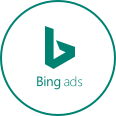
 Marketing to an international audience can be tricky—especially when it comes to PPC. The cost per click, for example, can vary dramatically depending on the region: when competing for the same term, the United Arab Emirates has an average cost per click that’s 8 percent greater than the U.S. average. Conversely, Serbia has an average cost per click that’s 95 percent less than the U.S. average.
Marketing to an international audience can be tricky—especially when it comes to PPC. The cost per click, for example, can vary dramatically depending on the region: when competing for the same term, the United Arab Emirates has an average cost per click that’s 8 percent greater than the U.S. average. Conversely, Serbia has an average cost per click that’s 95 percent less than the U.S. average.
There are great strides to be made on the international PPC stage, but knowing what practices will work best in appealing to non-English speaking counties can be a challenge—that is, until now.
Here are some ways you can improve your international appeal when using PPC advertising:
Currency Exchange
Most PPC ads are dedicated to a specific landing page. If you were marketing the same product in different countries, the easiest thing to do would be to use the same landing page across the board, right? And you can do it, with one small but important change: use the country’s currency.
As marketers, we try to make it easy for people to find the information they want; in PPC marketing, a successful conversion is often tied to the specific offer being made. If the person on the other end can’t easily make sense of the price, that’s a lost opportunity.
According to Shopfly, “Offering the local currency can increase your sales” and “most folks don’t want to pay in a different currency.” If given a choice between similar products, the business willing to use the customer’s home currency is more likely to win the sale.
You don’t have to reinvent every landing page, but do adjust the currency to show international buyers that their business is worth the effort.
Cultural Immersion
You don’t need to join a study abroad program to benefit from what sociologists call cultural immersion—or the integration of oneself into a culture that differs from one’s own.
For PPC marketers, the important takeaways from cultural immersion will be to understand the behaviors and social trends that might affect the outcome of an international PPC campaign.
For example, in Spain, the common two-hour lunch break (siesta), typically from 2:00 p.m. to 4:00 p.m. would not be a good time to advertise in this region. Similarly, Chuseok is one of the biggest and most important holidays in South Korea—it’s like Christmas—and most working Koreans go on holiday for up to five days in mid-September.
Being aware of these variances in culture will allow you to create more focused PPC advertising, and limit the times you advertise based on when those ads would be most effective.
Learn the Lingo
Because more people are searching on their smartphones, search queries themselves have changed to mirror colloquial speech—sometimes searches are just a collection of keywords. This is true in the U.S., and it’s also true abroad.
The search information found in your search query reports (pull them for different countries) is a great place to look for common ways of speaking in a language that differs from your own—even in English-speaking countries, where the nuances in speech will be subtle but important.
The little details add up, and if you’re thinking about branching out into new regions, these small tips could make a huge difference in an international PPC campaign.









